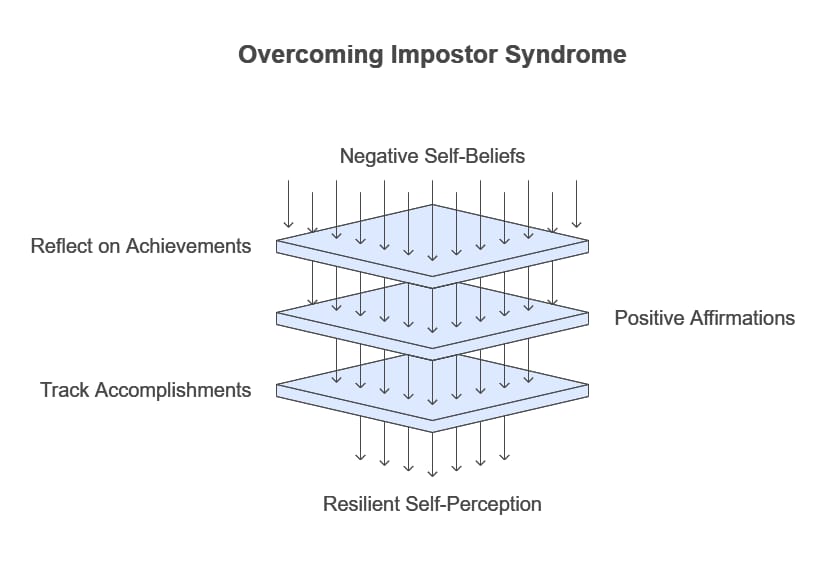- PM Tech House 🏠
- Posts
- Are You Good Enough?
Are You Good Enough?
Overcoming from doubt and the shadows of impostor syndrome
TL;DR: Impostor syndrome affects many individuals, leading to feelings of self-doubt and inadequacy despite accomplishments. In this article explores the causes of impostor syndrome, the cycle of self-doubt, and effective strategies for overcoming these feelings. By embracing your unique journey and trusting in yourself, you can break free from the cycle of self-doubt and recognize the incredible person you truly are.
Impostor syndrome is a psychological phenomenon that affects nearly 80% of individuals at some point in their lives. It manifests as persistent feelings of self-doubt, inadequacy, and the fear of being exposed as a fraud, despite evidence of success. This article aims to help those grappling with impostor syndrome by exploring its causes, impacts, and strategies for overcoming these debilitating feelings.
Create, Publish & Earn with Synthflow AI Voice Agents Marketplace
The Reality of Impostor Syndrome
Many people experience a sense of inadequacy in various aspects of their lives—be it their job, relationships, or personal achievements. This feeling often stems from various factors, including upbringing, societal expectations, and personal experiences. For instance, someone from a competitive background may feel overshadowed by peers or family members who excel academically or professionally. This can lead to a belief that their achievements are merely the result of luck rather than skill or hard work.
During the holiday season, feelings of loneliness can amplify these insecurities. When individuals find themselves sitting alone during what is typically a time for celebration and connection, they may spiral into negative thoughts about their worthiness. The contrast between societal expectations of joy and their own feelings of isolation can intensify the belief that they are not good enough.
The Cycle of Self-Doubt
Self-doubt can be exacerbated by external feedback, such as critical comments from managers or peers. Many individuals internalize this feedback and begin to believe that they are not good enough. They may focus on perceived failures while overlooking their accomplishments. This relentless pursuit of perfection can lead to burnout and further exacerbate feelings of inadequacy.

It's essential to recognize that feelings of unworthiness often stem from unresolved issues related to self-esteem rather than actual performance metrics. For instance, an individual might receive positive performance reviews but still fixate on minor criticisms. This pattern highlights the importance of reframing negative beliefs about oneself.
Challenging Negative Beliefs
To combat impostor syndrome effectively, it's crucial to challenge negative beliefs about oneself. One helpful exercise involves reflecting on personal achievements and recognizing that feelings of inadequacy often stem from internal narratives rather than external realities. By focusing on positive affirmations and acknowledging past successes—whether in academics or career—individuals can begin to shift their perspective.
A practical approach is to remind oneself daily that they are doing well. Keeping track of accomplishments—no matter how small—can reinforce positive self-perception and help build resilience against future challenges.

Embracing Individuality
Overcoming impostor syndrome requires embracing individuality and recognizing unique contributions. It's essential to understand that each person's journey is distinct; comparing oneself to others only fuels feelings of inadequacy. Instead of seeking validation from external sources like family or colleagues, individuals should cultivate self-trust and acknowledge their inherent worth.
Focusing on personal growth rather than comparison can help individuals appreciate their unique paths. Celebrating achievements and recognizing strengths fosters a sense of belonging and fulfillment.

Conclusion
Impostor syndrome can be a debilitating experience that leads individuals to question their abilities and worthiness despite evidence to the contrary. By challenging negative beliefs, reframing thoughts about success and failure, and embracing individuality, individuals can break free from the cycle of self-doubt.
Remember: you are not defined by your job title or performance metrics; you are defined by your unique experiences and contributions. Celebrate your achievements, trust yourself, and recognize that you are good enough just as you are. Life is not solely about reaching perfection but about enjoying the journey along the way. Embrace your individuality and take pride in your accomplishments; you have every reason to believe in yourself.

